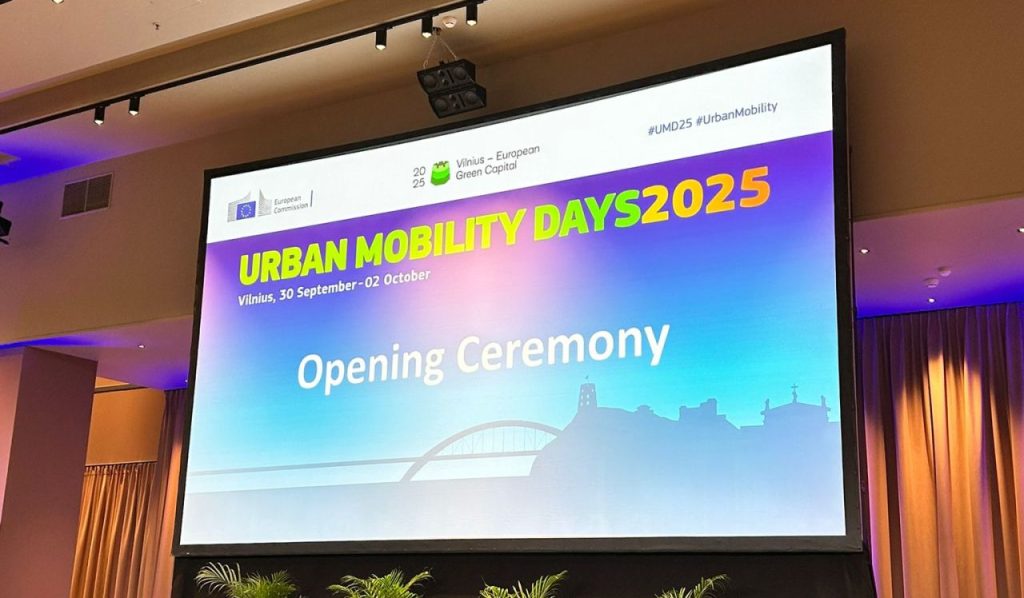SUM was present at Urban Mobility Days 2025 in Vilnius, engaging participants both through its dedicated stand and a joint session organised within the CIVITAS’ New Mobility Services Cluster.
At its stand, SUM presented the work and methodology developed throughout the nine Living Labs, innovative shared and digital mobility services, and practical tools supporting cities in integrating new mobility solutions. The stand served as a meeting point for city representatives, mobility operators, and researchers interested in SUM’s approach to innovation and co-created urban mobility.
CIVITAS and the NMS Cluster
The CIVITAS Initiative has, for over two decades, helped European cities design and implement more sustainable, inclusive, and forward-looking mobility strategies. Within this framework, the New Mobility Services (NMS) Cluster brings together leading projects, including SUM, GEMINI, metaCCAZE, and MOBILITIES FOR EU, that are developing shared, cooperative, and digital mobility solutions. The Cluster fosters synergies, joint learning, and common policy approaches among projects, ensuring that new mobility services effectively contribute to the decarbonisation and liveability of European cities.

Measuring impact through collaboration
As part of its participation in the NMS Cluster, SUM contributed to the joint session titled:
“Measuring Impact: CIVITAS NMS Cluster projects’ evaluation framework for achieving socio-economic and sustainability goals.” The session brought together partners and experts to discuss how shared approaches to impact evaluation can enhance understanding of the real-world effects of mobility innovations. Moderated by Saliou Diallo (CIVITAS NMS Cluster), it featured contributions from project partners Panagiotis G. Tzouras (NTUA) and Rebeca Murillo (INRIA), and sister projects Ioannis Lymaxis (GEMINI), Sofia Pechin Castagnino (metaCCAZE), and Cristina Juarez Batlle (MOBILITIES FOR EU).
SUM’s contribution: towards an integrated impact assessment framework
SUM presented insights from its own Impact Assessment Framework, developed to evaluate the outcomes of shared and digital mobility services tested across its Living Labs. The framework measures progress across environmental, social, and economic dimensions, with indicators such as modal shift, emissions reduction, accessibility, user satisfaction, and business viability.
During the discussion, SUM showed how this project-level framework complements the broader CIVITAS Evaluation Framework, aligning with common principles while remaining adaptable to local contexts and pilot realities.
Key takeaways
- The CIVITAS Evaluation Framework provides a shared foundation, but flexibility and contextual adaptation are essential.
Evaluations should prioritise a concise set of reliable, comparable indicators.
Combining quantitative and qualitative data ensures a fuller understanding of results.
Considering local context and limitations makes findings more meaningful and transferable.
Cross-pilot learning strengthens collective understanding and accelerates progress.
Engaging citizens remains crucial to capturing behavioural change and social impact.




